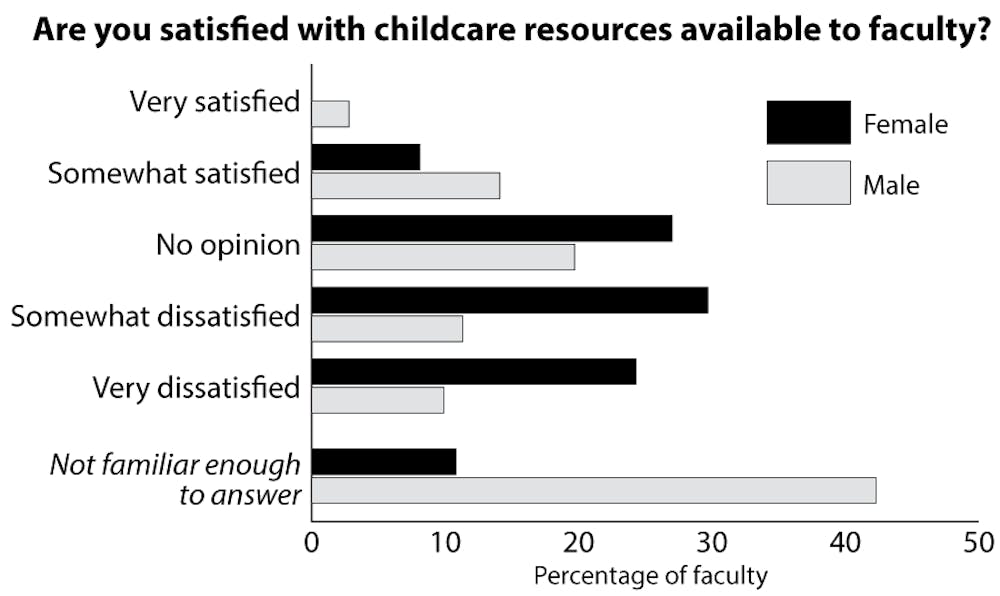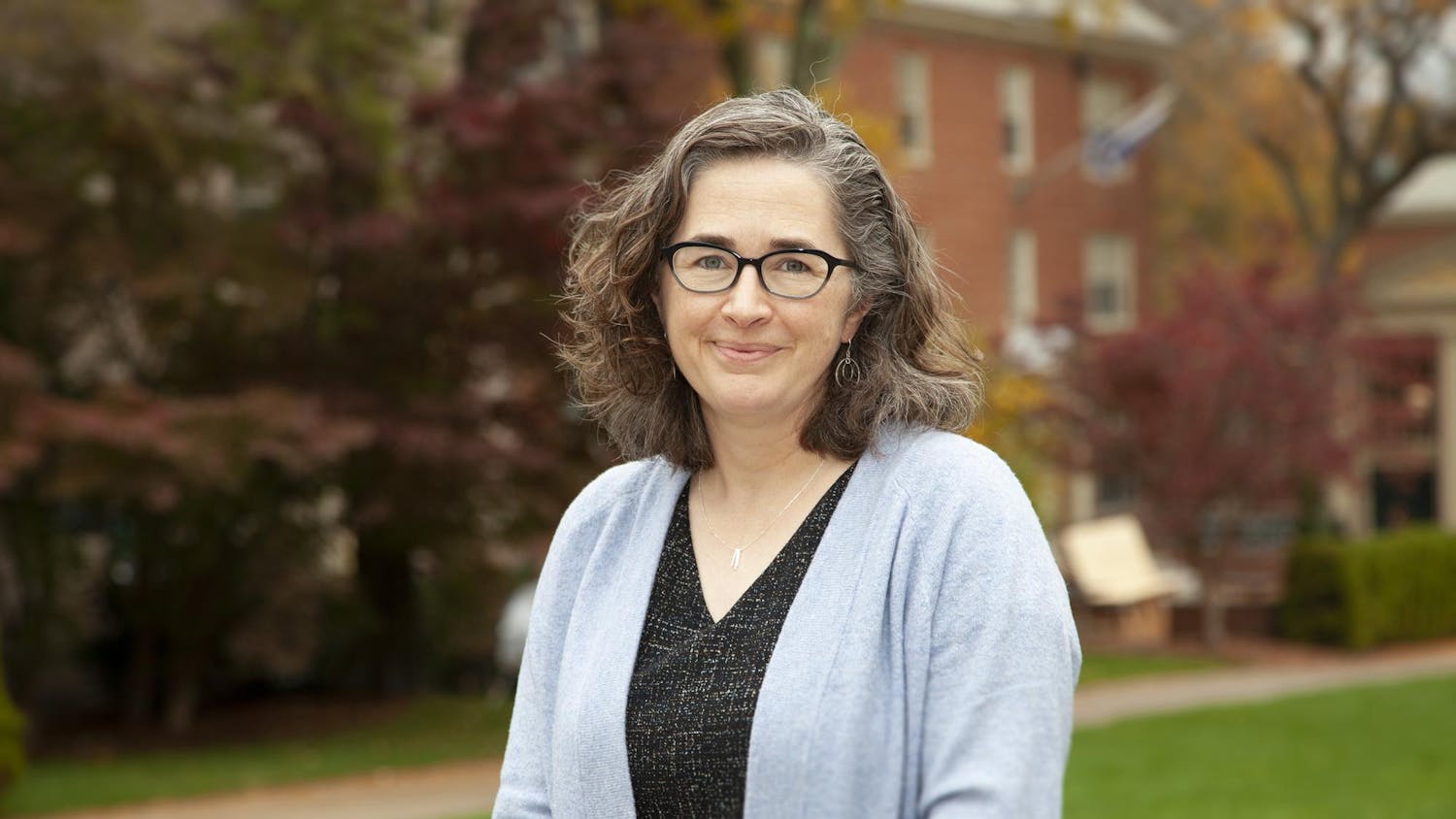About 33 percent of faculty members are somewhat or very dissatisfied with spouse support and about 30 percent are somewhat or very dissatisfied with childcare resources available to them from the University, according to the Herald faculty poll.
Respondents who indicated they were satisfied or dissatisfied with childcare were more likely to respond the same way to the question about spouse support and vice versa.
“Brown does not have a spousal hiring policy,” said Seth Rockman, associate professor of history. The University itself does not negotiate for the spouse’s job. Instead, a professor must personally deal with the department hiring him or her to create employment arrangements, Rockman said.
“At the end of the day, while there are many success stories of couples who solved the two-body problem, it’s owing to their own negotiation skills,” Rockman said, adding that “it should come out of University Hall” instead.
These obstacles get in the way of the University aggressively hiring the best professors, Rockman said. Other universities have funds allocated for hiring professors’ spouses, he added.
“Brown has been somewhat lagging behind its peers in dealing with spousal issues,” he said.
“People are concerned about this as an issue and I cannot say we’ve managed to satisfy everyone,” said Elizabeth Doherty, senior associate provost. “The frustration is that (spouses) believe, quite rightly, that they are all well-qualified for a faculty position.”
But as Brown is a smaller institution, the number of jobs available is limited, she said.
In a situation where a spouse is in need of a job, but the University is unable to employ him or her, the University attempts to create a short-term visiting position while the spouse finds a regular full-time job, Doherty said. Resources such as a search engine called the Higher Education Recruitment Consortium, which lists all the available positions in the New England area, help spouses find jobs, she said.
While 3 percent of polled faculty members reported they were very satisfied with spouse support, 2 percent said they were very satisfied with childcare resources at the University.
According to the Report of the Advisory Committee on Childcare presented to the Brown University Community Council in February, 26 percent of respondents to a survey reported they did not receive the childcare they needed in the past 12 months.
There is “little doubt that Brown currently under-supports the working parents among its students, staff and faculty, and is not competitive with our peers,” the report stated.
The report was created in response to the closure of the Taft Avenue Day Care Center, effective last August 31, Rockman said.
The report indicated that almost 2,000 people affiliated with the University signed a petition urging the administration to improve its childcare support system. It stated that an inefficient system negatively affects workplace productivity, leads to a drop in female faculty members and causes the University to lag behind other institutions with better systems.
“The system is really broken,” wrote an anonymous staff member in the report.
A real problem also exists because University faculty meetings are not scheduled to line up with day care closing times, Rockman said.
The report recommends that Brown dedicate more funding to childcare costs, for both staff members and graduate students, develop a website with accessible information on childcare, schedule work hours and affiliated daycare hours to accommodate family needs and make maternity leave gender-neutral.
President Christina Paxson, in her response to the report, said she agreed with the report’s points and put aside $250,000 per year to assist staff members with childcare costs. But certain steps such as increasing funding for graduate students are outside of the University’s budget, she wrote.
“Although Brown can — and will — increase the support provided for childcare, the growth in support over time must be informed by our financial circumstances,” Paxson wrote. “My hope is that this marks the beginning of an ongoing conversation about how to make Brown University a more attractive place for parents to work and study.”
Methodology:
Questionnaires were sent to the email accounts of faculty members and advertised on the faculty Morning Mail April 9. Only faculty members that teach, advise or interact with undergraduate students were invited to respond, and 120 responses were recorded out of a population of 713. The poll has a 8.7 percent margin of error with 95 percent confidence.
Find results of previous polls at thebdh.org/poll.

ADVERTISEMENT




